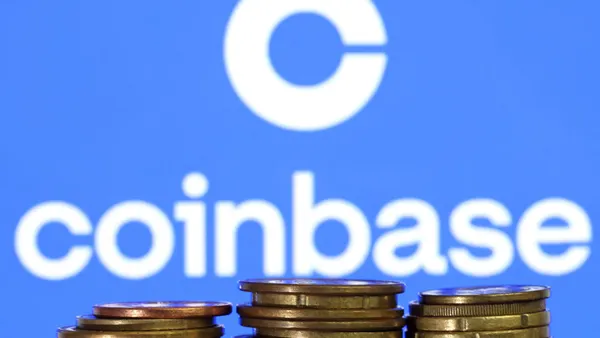Consumers looking for deals often use coupon finders in their browsers to find promotional offers to apply at checkout. Now, Citi wants to be the preferred intermediary through which its cardholders find online discounts and other rewards through a tool it rolled out in late January called Citi Shop.
The Citi Shop browser extension, which can only be used by Citi credit card holders, searches for coupons on eligible merchant checkout pages and suggests applicable codes to apply at checkout. The program can potentially reduce the amount a customer pays and can also activate cash-back offers that are delivered as credits on credit card statements. It includes roughly 5,000 merchants across 30 product categories.
“We’re not only making it easier for card members to find savings while shopping online but we’re also addressing that finding time is one of the top barriers for consumers looking for a deal,” Anthony Merola, head of proprietary products at Citi branded cards, told Banking Dive.
Citi partnered with fintech Wildfire Systems, a white-label loyalty platform that works with “dozens” of banks and fintech firms, including Royal Bank of Canada, LendingClub and Acorns, to develop Citi Shop, said Shawn Conahan, the company’s chief revenue officer. Citi Ventures, one of Citi’s three venture investing vehicles, invested an undisclosed amount in Wildfire in 2022.
The goal of Citi Shop, according to the bank, is to enhance card members' relationships and trust with the institution and help them save money. These types of programs also boost revenue when bank fees are under pressure, including efforts to limit late fees and credit card interchange, Conahan said.
Citi did not comment on its monetization model, including whether it earns a percentage of each successful Citi Shop transaction that has a cash-back benefit. However, while not referring to Citi specifically, Conahan said banks and fintechs it works with typically take a cut of merchant-funded cash-back-offer pie, which can be 10% of the price of an item, or higher.
Offers vary by merchant and are not a fixed amount, he clarified, and the company’s merchant development team works with merchants and negotiates offer rates. A portion of the merchant offer is shared with the consumer.
“We take a little off the top and we get to make a business out of that. We give the rest — the lion's share of it — [to the partner], and then they share that with the consumer, so everyone wins,” he said.
An ecosystem of browser extensions
Getting into the retail checkout through browser extensions is a natural fit for banks and financial firms that want to learn more about how consumers shop, said Suzy Davidkhanian, a retail analyst at Insider Intelligence.
In recent years, banks and fintechs have rolled out browser extensions that offer coupon codes and cash-back offers for e-commerce shoppers.
These include PayPal, which operates PayPal Honey, a digital coupon and price-tracking platform that the payments company acquired for $4 billion in 2020, and Capital One Shopping, a coupon and cash-back platform that stemmed from the bank’s 2018 acquisition of the fintech Wikibuy for an undisclosed amount. (Wikibuy was later rebranded as Capital One Shopping, which finds coupons and cash-back offers for consumers, including those who aren’t Capital One customers.)
“There's all this data that's sitting in credit card behaviors, and monetizing that ... from a financial institution’s perspective, is important for everybody,” Davidkhanian said. “The brands want to know what their customers and potential customers are doing so that they can target them.”
Trends the bank sees from shopping habits, surveys or direct customer feedback “help us elevate the card member experience and bring more impactful solutions,” Merola said.
Wildfire said its toolset does not allow its partners to monetize the data, and Citi confirmed that it’s not monetizing consumer shopping data insights from Citi Shop.
“We decided that we were not going to be a data company,” Conahan said. “We are a fintech [and] we monetize the transaction. We do not sell data.”
The data play
Some companies in the digital couponing field might be interested in using consumer shopping data — likely aggregated insights — to help partner retailers pitch offers to consumers.
“Institutions have so much data about people's behaviors. I don't think they're going to ever share [individual transaction data], but I think they’re going to be able to say things like ‘People who live in New York go out on Tuesday or Wednesday, and so, if you need them to come to your local restaurant, maybe this is when you target them with an ad or with a coupon or a gift certificate,’” Davidkhanian said.
John Kim, executive vice president and chief product officer at PayPal, suggested financial companies may use aggregated, anonymized insights garnered from shopping tools to help merchants suggest offers to consumers who may be interested in a particular product or service. Network rules and regulation, he said, prevent banks and financial companies from sharing individual-level transaction data with partners.
For Wildfire’s clients, a key motivation is to keep the customer loyal over time, Conahan said.
“It’s 10 times more expensive to acquire a new customer than to keep an existing one, and nothing says I love you like free money,” he said. “What they have realized is that consumers expect these kinds of rewards in exchange for their loyalty.”



















